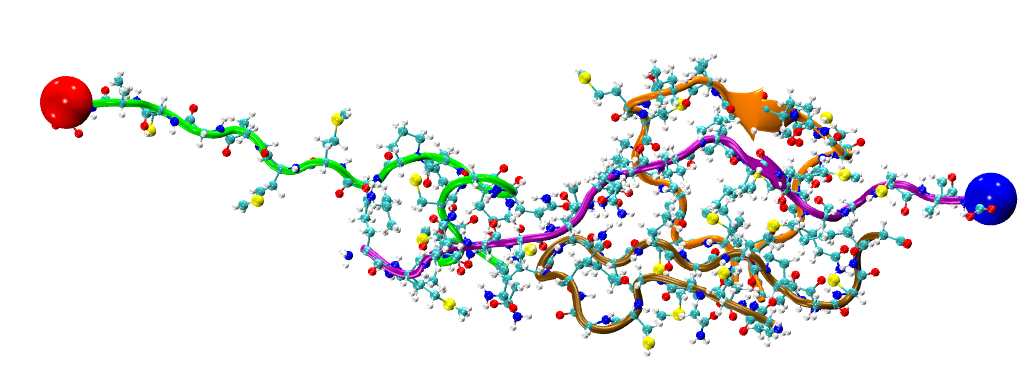Extremely elastic proteins

The ultimate properties of proteins with respect to their ability to be force-reactive, are coarsely described by their capacity to withstand or transmit sensed force. Some proteins are able to be extremely elastic, storing potential energy and releasing it in the form of kinetic energy. One of the proteins sharing this functionality is Cnidoin, an intrinsically disordered protein that composes the nematocysts, explosive organelles of metazoans useful for self-defense and preying. By sensing the behaviour of the protein upon the application of external forces, molecular dynamics simulations interfaced to experiments will provide an understanding of the relations between the sequence of Cnidoin and its ability to appear as extremely elastic and fulfil its function. Ultimately, such an understanding will, on one side, provide the mechanism of nematocysts‘ discharge and, on the other, will open new scenarios about the possibility of employing cnidoin’s elasticity for the development of new materials.
Über das HITS
Das HITS (Heidelberger Institut für Theoretische Studien) wurde 2010 von dem Physiker und SAP-Mitbegründer Klaus Tschira (1940-2015) und der Klaus Tschira Stiftung als privates, gemeinnütziges Forschungsinstitut gegründet. Es betreibt Grundlagenforschung in den Naturwissenschaften, der Mathematik und der Informatik. Zu den Hauptforschungsrichtungen zählen komplexe Simulationen auf verschiedenen Skalen, Datenwissenschaft und -analyse sowie die Entwicklung rechnergestützter Tools für die Forschung. Die Anwendungsfelder reichen von der Molekularbiologie bis zur Astrophysik. Ein wesentliches Merkmal des Instituts ist die Interdisziplinarität, die in zahlreichen gruppen- und disziplinübergreifenden Projekten umgesetzt wird. Die Grundfinanzierung des HITS wird von der Klaus Tschira Stiftung bereitgestellt.